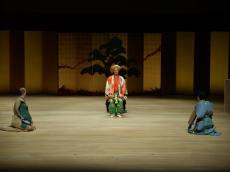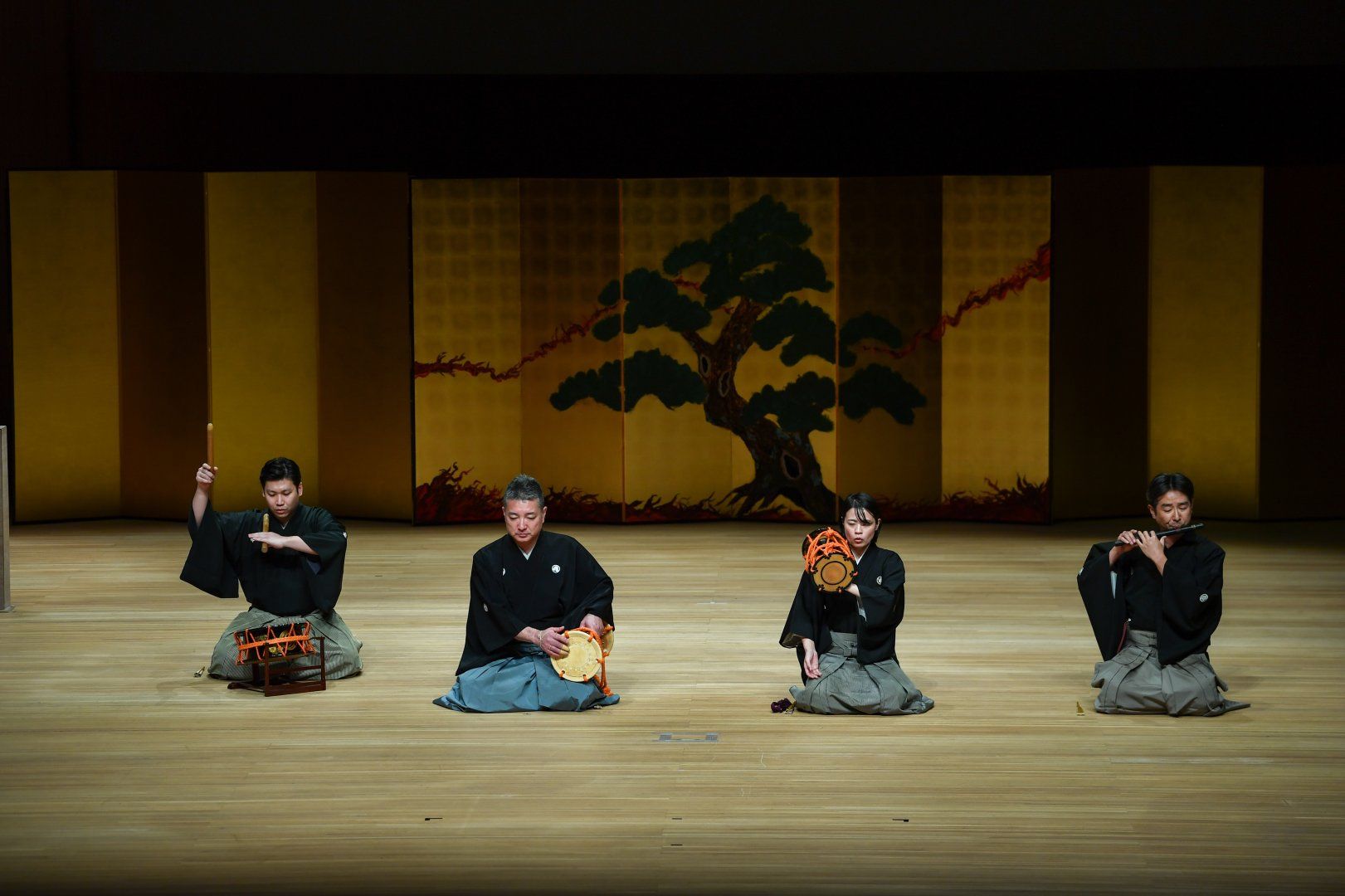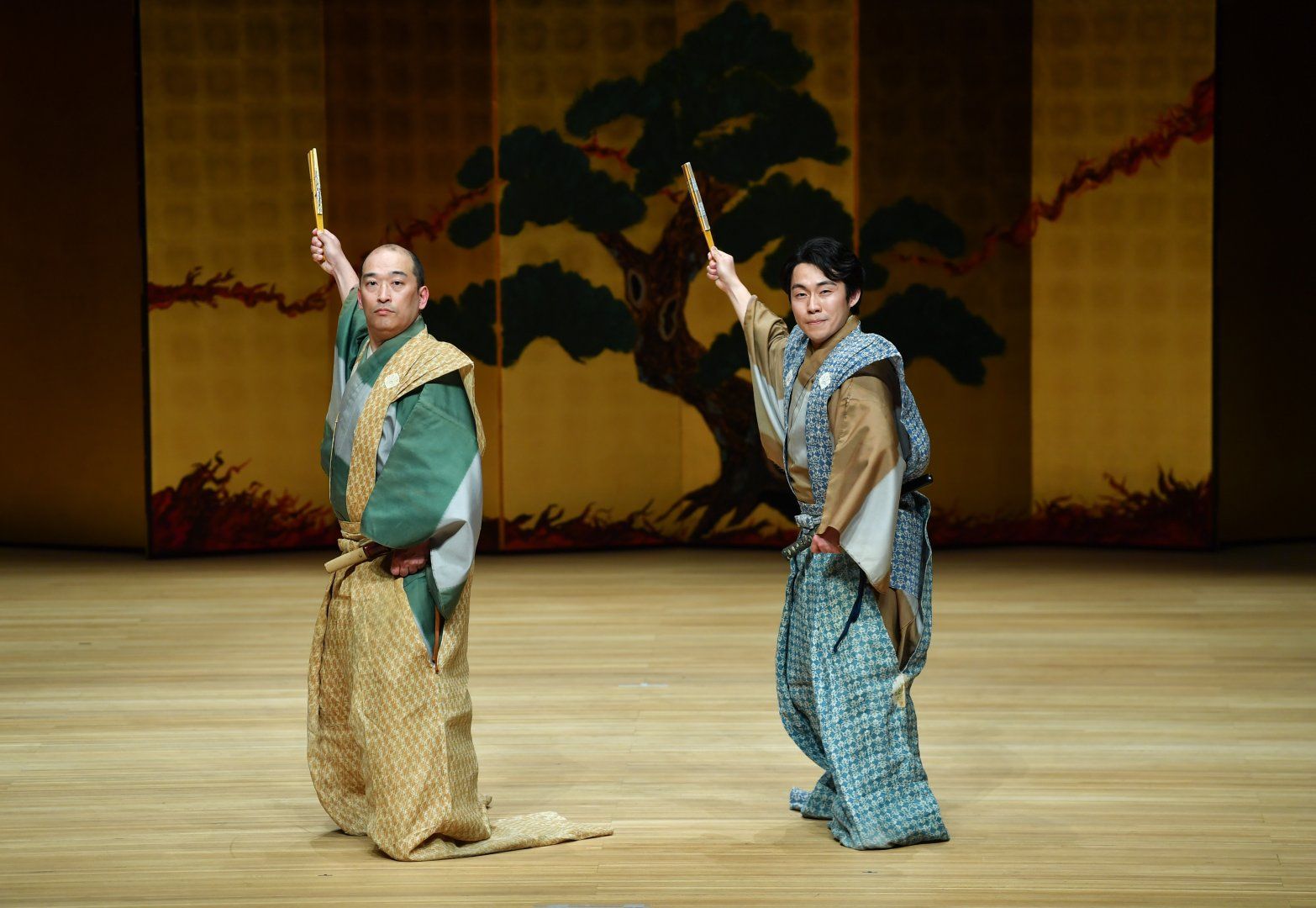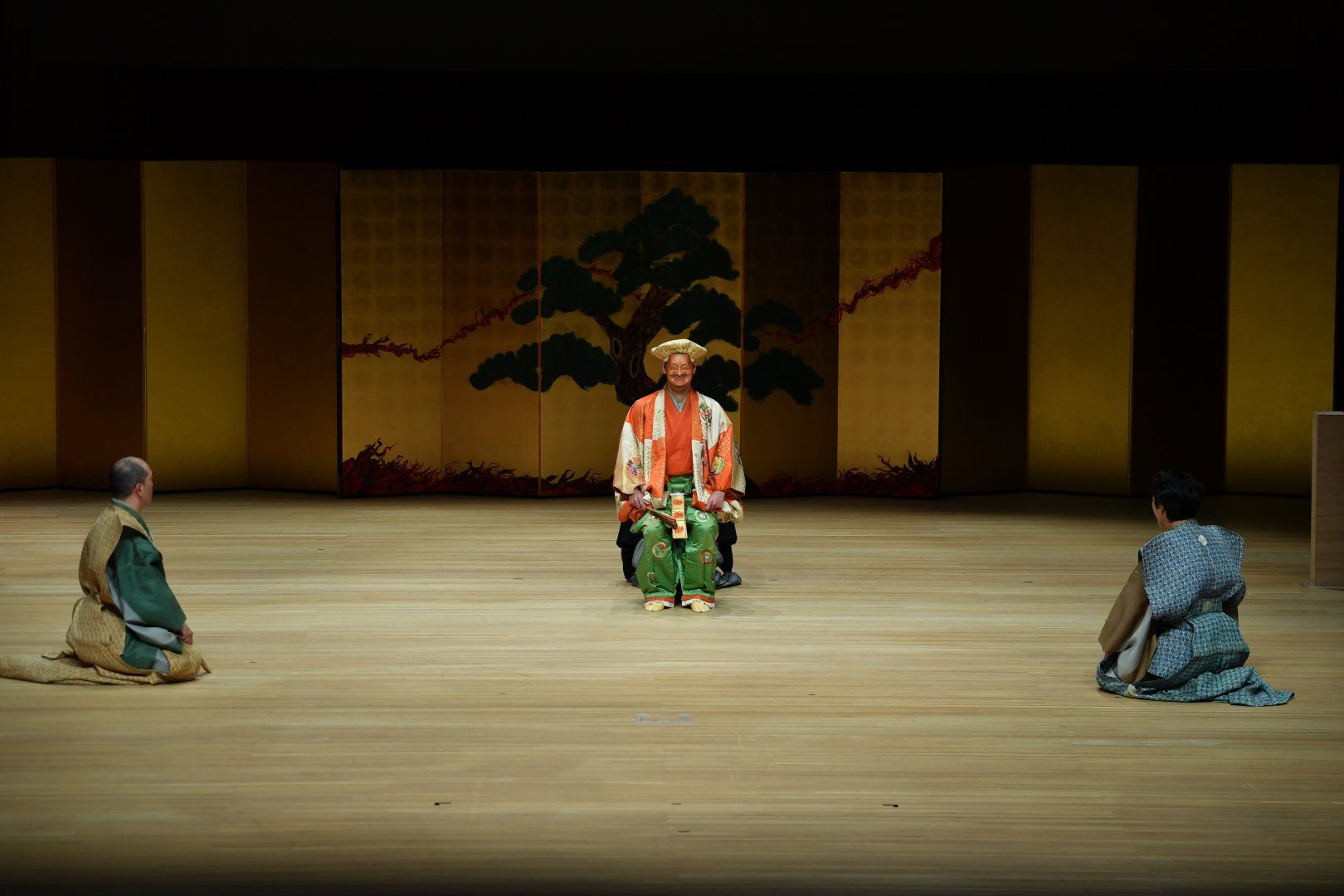|
|
TODAY.AZ / Arts & Entertainment
Japanese theater art totally captivates Baku audience
02 February 2024 [16:02] - TODAY.AZ
 Laman Ismayilova
Laman Ismayilova
Japanese theatre art brilliantly demonstrates the country's deep-rooted cultural traditions and its commitment to artistic expression.
Whether it is Kabuki, Bunraku, or Noh, these theatre forms continue to enchant audiences with their majesty and depth.
H?sh? Theatre School's Opera No has totally captivated the culture and art enthusiasts at the Heydar Aliyev Centre in Baku, Azernews reports.

Noh is a major form of classical Japanese dance-drama that has been performed since the 14th century.
With a history spanning over 700 years, Noh theatre is regarded as one of the oldest forms of classical Japanese performing arts. It is based on artistic works and comedic scenes, combining costumed dances.
This art form has gained worldwide acclaim for its high level of performance and is included in UNESCO's List of Intangible Cultural Heritage.
Prior to the theatrical performance, director of the H?sh? Theatre School, Kazufusa H?sh?, shared the history of Noh theatre with local media.
He emphasised that this kind of production was being presented on the Azerbaijani stage for the first time.
"It is a great honour for our theatre to perform for the first time in Azerbaijan, where I am also visiting for the first time. Despite this fact, I see a similarity between our countries - Japan and Azerbaijan - primarily due to the Great Silk Road. Azerbaijan is known as the Land of Fire, and fire plays an important role in Japanese culture. Moreover, Japan is known worldwide as the Land of the Rising Sun," said Kazufusa H?sh?.

The "Opera No" consisted of three parts. The stage presented the Raku dance and revealed the secret of true happiness through prayers to the goddess of happiness. A special place in the production was given to the Divine Sword-katana - the Japanese sword of the samurai, known for its long, slightly curved blade and hilt.

Noh performances are accompanied by the playing of flutes and drums, setting a unique rhythm to the stage action.
The style of music performed is called gagaku. All elements of the Noh theater—props, costumes, masks, gestures, movements, and intonations—have symbolic significance and are linked to ritual actions.
Noh theatre art brings emotional comfort, inspiring people to lead a healthy and happy lifestyle.
The Noh Theatre is a fascinating world where nothing is superfluous and where every movement and detail carries deep meaning.
The performances by the theatre artists were met with prolonged applause from the audience.
URL: http://www.today.az/news/entertainment/244279.html
 Print version
Print version
Connect with us. Get latest news and updates.
See Also
- 21 April 2025 [11:18]
Program for 2nd Fidan Hajiyeva's Int'l Opera Festival announced - 18 April 2025 [14:54]
Carpet Museum opens exhibition 'Second Life' - 18 April 2025 [12:03]
Shirvanshahs' Palace Complex displays over 60 calligraphic works - 18 April 2025 [11:02]
Azerbaijan to host Opera Days for first time - 17 April 2025 [15:19]
Int'l Mugham Center holds musical evening in honor of Shirulla Imanov - 17 April 2025 [13:00]
Reconstruction in Agdam, Khojavand, and Fuzuli follows five-stage plan: official - 17 April 2025 [12:02]
Webber Ndoro emphasizes key role of local communities in restoration projects - 16 April 2025 [13:36]
From screens to streets: TikTok brings Novruz traditions to global audience - 16 April 2025 [12:38]
Renowned mugham singer to meet with students - 16 April 2025 [11:42]
Philharmonic Hall holds magnificent concert in honor of Hajibayli dynasty
Most Popular
 Separatists & Pashinyan - the farce continues
Separatists & Pashinyan - the farce continues
 4SIM signs MoUs with Chinese institutions to boost cooperation in green and industrial technologies
4SIM signs MoUs with Chinese institutions to boost cooperation in green and industrial technologies
 Khojaly victim testifies at Baku Military Court: “Madat Babayan’s gang tortured me”
Khojaly victim testifies at Baku Military Court: “Madat Babayan’s gang tortured me”
 Iranian President Pezeshkian to visit Azerbaijan with large economic delegation
Iranian President Pezeshkian to visit Azerbaijan with large economic delegation
 Nearly 69 hectares cleared of mines in liberated Gazakh territories
Nearly 69 hectares cleared of mines in liberated Gazakh territories
 Armenia’s “Crossroads of Peace” lacks substance to deliver regional integration
Armenia’s “Crossroads of Peace” lacks substance to deliver regional integration
 Horadiz-Aghband railway line nears two-thirds completion
Horadiz-Aghband railway line nears two-thirds completion
